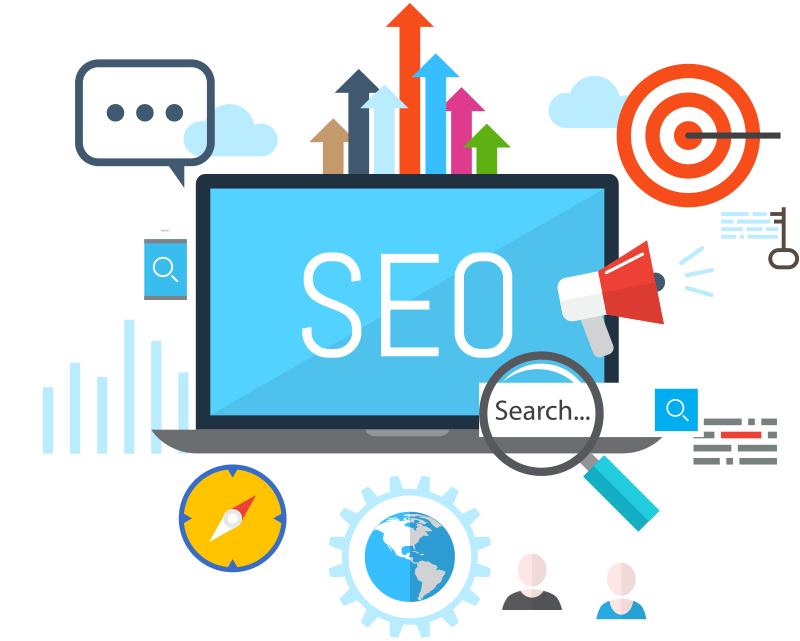Search Engine Optimization


HOW WE DO
We provides the search engine optimization(SEO) services in Karnal and in other regions on India. We will provide you complete analytic report of your online presence in an easy to understand format so you can take right decisions after understanding your current online position.
Here is the process involved in an effective SEO campaign.
1. In first Step we search KEYWORDs that helps you to work in a particular direction for better results.
2. After that in Second ONSITE OPTIMIZATION
Means on-page & off-page optimization The goal of on page and off page optimization is to generate a theme consistent with your targeted keywords. The search engine is a robot, not a human … and therefore, you must follow our proven process to educate the robot so that it brings your website up when your potential customers are searching for specific business related keywords
3. After that link building is done. In the field of seo, link building describes actions aimed at increasing the number and quality of inbound links to a webpage
4. Finally REPORTING AND ANALYSIS is done.
On-Page & Off-Page Optimization
The goal of on page and off page optimization is to generate a theme consistent with your targeted keywords. The search engine is a robot, not a human … and therefore, you must follow our proven process to educate the robot so that it brings your website up when your potential customers are searching for specific business related keywords.
Search Engine Optimization Techniques
Understanding how search engines work is only the first step of the process in improving a site’s search rankings. Actually improving a site’s rank involves leveraging various SEO techniques to optimize the site for search:
Keyword Research – Keyword research is often the starting point for SEO and involves looking at what keywords a site is already ranking for, what keywords competitors rank for, and what other keywords potential customers are searching for. Identifying the terms that searchers use in Google search and other search engines provides direction on what existing content can be optimized and what new content can be created.
Content Marketing – Once potential keywords are identified, content marketing comes into play. This can be updating existing content or creating brand new pieces of content. Because Google and other search engines place a premium on high-quality content, it’s important to research what content is already out there and create a compelling piece of content that provides a positive user experience and has a chance of ranking highly in the search engine results. Good content also has a greater chance of being shared on social media and attracting links.
Link Building – Because links from external websites (called “backlinks” in SEO parlance) are one of the core ranking factors in Google and other major search engines, obtaining high-quality backlinks is one of the main levers that SEOs have. This can involve promoting good content, reaching out to other websites and building relationships with webmasters, submitting websites to relevant web directories, and getting press to attract links from other websites.
On-Page Optimization – In addition to off-page factors such as links, the improving the actual structure of the page can have tremendous benefits for SEO, and is a factor that is entirely in the control of the webmaster. Common on-page optimization techniques include optimizing the URL of the page to incorporate keywords, updating the title tag of the page to use relevant search terms, and using the alt attribute to describe images. Updating a page’s meta tags (such as the meta description tag) can also be beneficial– these tags don’t have a direct impact on search rankings, but can increase click-though rate from the SERPs.
Site Architecture Optimization – External links are not the only thing that matters for SEO, internal links (the links within one’s own website) play a large role in SEO as well. Thus a search engine optimizer can improve a site’s SEO by making sure key pages are being linked to and that relevant anchor text is being used in those links to help improve a page’s relevance for specific terms. Creating and XML sitemap can also be a good way for larger pages to help search engines discover and crawl all of the site’s pages.
Semantic Markup – Another SEO strategy that SEO experts utilize is optimizing a website’s semantic markup. Semantic markup (such as Schema.org) is used to describe the meaning behind the content on a page, such as helping to identify who the author of a piece of content is or the topic and type of content on a page. Using semantic markup can help with getting rich snippets displayed in the search results page, such as extra text, review stars, and even images. Rich snippets in the SERPs doesn’t have an impact on search rankings, but can improve CTR from search, resulting in an increase in organic traffic.
